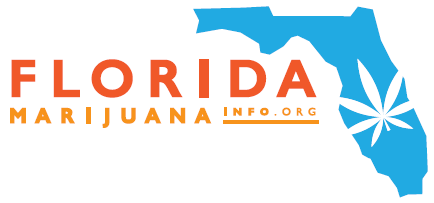On Friday, May 2nd, 2014 the Florida state legislature passed Senate Bill 1030, the “Compassionate Medical Cannabis Act of 2014”, as well as Senate Bill 1700, which establishes record keeping requirements for the low-THC medical marijuana law program and research on low-THC cannabis and CBD. The Compassionated Medical Cannabis Act might be better referred to as the Florida Medical Hemp Act, as SB 1030 only legalizes low-THC varieties of marijuana. Hemp is usually defined as cannabis with less than 1% THC, the low-THC cannabis as defined by SB 1030 are cannabis flowers that contain less than 0.8% THC and over 10% CBD (cannabidiol). Similar strains, such as Charlotte’s Web, were developed in other medical marijuana states. Charlotte’s Web was developed by crossbreeding medical marijuana with industrial hemp.
The Charlotte’s Web strain was named after Charlotte Figi, a 5 year old whose parents and physicians claimed the strain significantly reduced her seizures. More than 125,000 children in Florida suffer from epilepsy and could benefit from low-THC cannabis. Governor Rick Scott has said he will sign the bills into law. Once signed into law by the Governor, physicians may begin enrolling patients into the Compassionate Use Registry on January 1st, 2015.
Low-THC Medical Marijuana Law in Florida – Who Qualifies?
To qualify for Florida’s low-THC medical marijuana program, you must be a resident of Florida who has been added to the state’s Compassionate Use Registry by a licensed physician. SB 1030 is so strict it interferes with a doctors ability to prescribe low-THC cannabis for conditions not approved by the Florida legislature. A doctor can only add a patient to the Compassionate Use Registry if the patient is “suffering from cancer or a physical medical condition that chronically produces symptoms of seizures or severe and persistent muscle spasms may order for the patient’s medical use low-THC cannabis to treat such disease, disorder, or condition or to alleviate symptoms of such disease, disorder, or condition, if no other satisfactory alternative treatment options exist for that patient.”
No Smoking
Patients are not allowed to smoke their low-THC cannabis, however, they may vaporize or use other routes of administration. Their physician must come up with a treatment plan that includes the dose, route of administration, planned duration, monitoring of the patient’s symptoms and other indicators of tolerance or reaction to low-THC cannabis. The physician must send the patient’s treatment plan on a quarterly basis to the University of Florida College of Pharmacy, for research on the safety and efficacy of low-THC cannabis on patients.
Children may qualify with the informed consent of the patient’s legal guardian to treatment with low-THC cannabis after their physician has sufficiently explained the current state of knowledge in the medical community of the effectiveness of treatment of the patient’s condition with low-THC cannabis, the medically acceptable alternatives, and the potential risks and side effects.
A physician who wishes to enroll patients in the Compassionate Use Registry must “successfully complete an 8-hour course and subsequent examination offered by the Florida Medical Association or the Florida Osteopathic Medical Association that encompasses the clinical indications for the appropriate use of low-THC cannabis, the appropriate delivery mechanisms, the contradictions for such use, as well as the relevant state and federal laws governing the ordering, dispensing, and possessing of this substance. The first course and examination shall be presented by October 1, 2014, and shall be administered at least annually thereafter.”
5 Dispensaries To Open
SB 1030 calls for the opening of 5 low-THC medical marijuana dispensaries throughout the state. A dispensing organization will open in northwest Florida, northeast Florida, central Florida, southeast Florida, and southwest Florida, in order to ensure reasonable statewide accessibility and availability.
In order for an application to open a dispensary to be approved, the applicant must be able to meet certain criteria. Applicants must show they have “the technical and technological ability to cultivate and produce low-THC cannabis. The applicant must possess a valid certificate of registration issued by the Department of Agriculture and Consumer Services pursuant to s. 581.131 that is issued for the cultivation of more than 400,000 plants, be operated by a nurseryman as defined in s. 581.011, and have been operated as a registered nursery in this state for at least 30 continuous years.”
The applicants also need to show they have the “ability to secure the premises, resources, and personnel necessary to operate as a dispensing organization” and the “ability to maintain accountability of all raw materials, finished products, and any byproducts to prevent diversion or unlawful access to or possession of these substances.” And they must have an “infrastructure reasonably located to dispense low-THC cannabis to registered patients statewide or regionally as determined by the department.” Additionally, they must post a $5 million bond and demonstrate they have the financial ability to maintain operations for the duration of the 2 year approval cycle. All owners and managers of the dispensaries must be fingerprinted and complete a background check. A physician must also be hired as a medical director to supervise.
CBD and Low-THC Cannabis Research Program Established
SB 1030 creates a CBD and low-THC cannabis research program. Universities throughout Florida that have both medical and agricultural research programs may conduct research. SB 1030 also appropriates $1 million for low-THC medical marijuana research for fiscal year 2014-2015. Much of the research will focus on low-THC cannabis and CBD’s effects on intractable childhood epilepsy. Other research “may include, but is not limited to, the agricultural development, production, clinical research, and use of liquid medical derivatives of cannabidiol and low-THC cannabis for the treatment for refractory or intractable epilepsy.”
Compassionate Use Registry and SB 1700
SB 1030’s companion bill, SB 1700, also passed the state legislature. Senate Bill 1700 exempts patients personal identifying information in the Compassionate Use Registry from public record laws, so that they can remain confidential. Information from the Compassionate Use Registry may be shared with law enforcement agencies investigating violations of laws regarding cannabis. The information may also be shared with dispensaries and physicians for verification purposes.
The bill also sets up record keeping requirements for researchers working with low-THC cannabis. SB 1700 will take effect on the same day as SB 1030. Florida is following the path Utah, Alabama, Kentucky, Mississippi, and Wisconsin have taken, by passing a very restrictive and limited CBD-only medical marijuana bill, but the voters of the Sunshine State will still have a chance to vote for Amendment 2 on election day this November, and vote on the full legalization of medical marijuana.
For the full text of Senate Bill 1030 go here: http://www.myfloridahouse.gov/Sections/Documents/loaddoc.aspx?FileName=_s1030er.DOCX&DocumentType=Bill&BillNumber=1030&Session=2014
For the full text of Senate Bill 1700 go here: http://www.myfloridahouse.gov/Sections/Documents/loaddoc.aspx?FileName=_s1700er.DOCX&DocumentType=Bill&BillNumber=1700&Session=2014













 OMD Agency
OMD Agency
Recent Comments